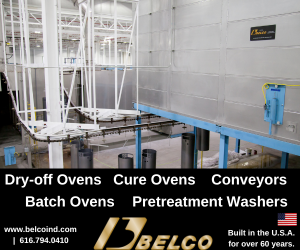Specifications and Certification
Who is responsible for the testing and certification that parts meet specifications?
Q. Our company outsources all of our metal finishing and requires that all parts be finished and tested to either AMS, ASTM or MIL specifications. Much to our surprise we have discovered that many of the companies that perform anodizing and many types of electroplating assume that we will perform these tests to determine whether the parts meet the required specifications. The question I pose to you is this: Who is responsible for the testing and certification that parts meet specifications? J. M.
A. Your question is a good one, and as far as I'm concerned hits a major issue that still seems to pervade the metal finishing industry in the United States.
I receive many e-mails on this particular issue and most of them concern the same question you have asked. In fact, in my travels in North America I am constantly amazed and, in many cases, shocked that metal finishing operations do not even have copies of the standards that they are supposed to be matching. In my opinion there is only one correct answer to your question. If your anodizer or metal finisher certifies that the parts are finished to a particular specification or meets a particular standard, the metal finisher has to perform these tests. If these tests are not done, then the shop cannot certify the parts as meeting the specifications.
Our industry should be way beyond the classic “dip it and ship it” mentality that was common years ago. Yes, I am aware that the economic picture has changed dramatically in the last ten years or so. Yes, it is true that the overseas competition in many cases can produce similar parts that are much less expensive than those produced domestically. (Note that I use the word similar, not the same.)
In our rush to compete with these cheaper parts we look for ways to reduce costs. One of the obvious ways is to minimize testing of finished parts. Why not let the final customer do the quality control?
This kind of thinking may be okay in the short-term, but long-term the customer as well as the vendor/supplier will lose out. Eventually the vendor/supplier will lose this customer to somebody else. My grandmother always told me when I was growing up that in most cases you get what you pay for. In my opinion this advice still holds. As any customer of metal finishing services, if you go for the lowest price, more times than not you are going to get the lower quality.
If a metal finishing vendor offers testing and certification and performs the tests required, the vendor will have higher overhead than a finishing shop that does not do this. It is important that both the customer and the vendor understand this. It is my personal opinion that a vendor that does perform all of this required testing can and should charge more for services. If a customer wants parts that are tested and certified than customers should be willing to pay a little extra.
Regarding various types of standards: copies of ASTM specifications will cost between $35 and $45 apiece but can be obtained at a lower price by buying packages of 10 or 20 specifications. Even better, you can become a participating member of the ASTM for the modest fee of $75 per year. This fee entitles you to a single volume of ASTM specifications, and the one that most platers are interested in is Volume 2.05. More information on becoming a member can be found at www.astm.org. MIL-Spec specifications can be found at the Assist website: http://assist.daps.dla.mil/online/start/.
Related Content
How to Maximize Nickel Plating Performance
The advantages of boric acid-free nickel plating include allowing manufacturers who utilize nickel plating to keep up the ever-changing regulatory policies and support sustainability efforts.
Read MoreSuccessful South African Plater Beating the Odds
Remaining focused on quality and reliability, Team Plating Works stays profitable in a volatile and challenging economy.
Read MoreNanotechnology Start-up Develops Gold Plating Replacement
Ag-Nano System LLC introduces a new method of electroplating based on golden silver nanoparticles aimed at replacing gold plating used in electrical circuits.
Read MoreTroubleshooting Alkaline Zinc
One of the most common problems that can arise when plating with alkaline zinc is an imbalance of brightener in the solution. In this helpful Ask the Expert article, Chad Murphy of Columbia Chemical discusses how different zinc metal concentrations and brightener concentrations can impact efficiency.
Read MoreRead Next
Education Bringing Cleaning to Machining
Debuting new speakers and cleaning technology content during this half-day workshop co-located with IMTS 2024.
Read MoreDelivering Increased Benefits to Greenhouse Films
Baystar's Borstar technology is helping customers deliver better, more reliable production methods to greenhouse agriculture.
Read MoreEpisode 45: An Interview with Chandler Mancuso, MacDermid Envio Solutions
Chandler Mancuso, technical director with MacDermid Envio discusses updating your wastewater treatment system and implementing materials recycling solutions to increase efficiencies, control costs and reduce environmental impact.
Read More


























